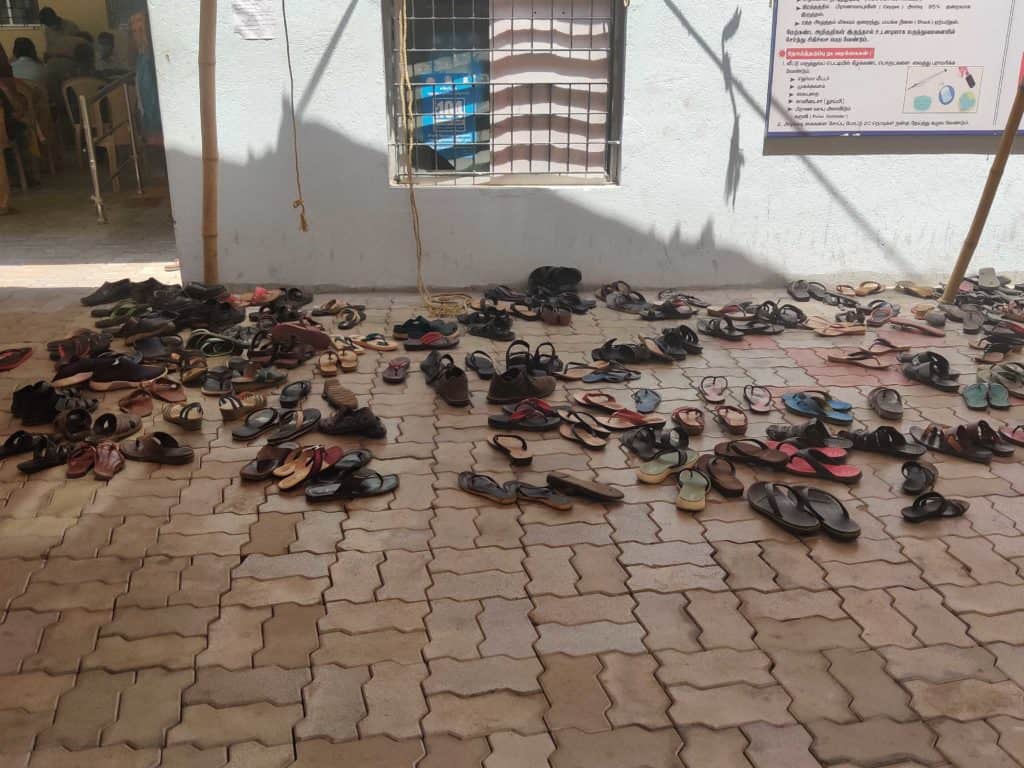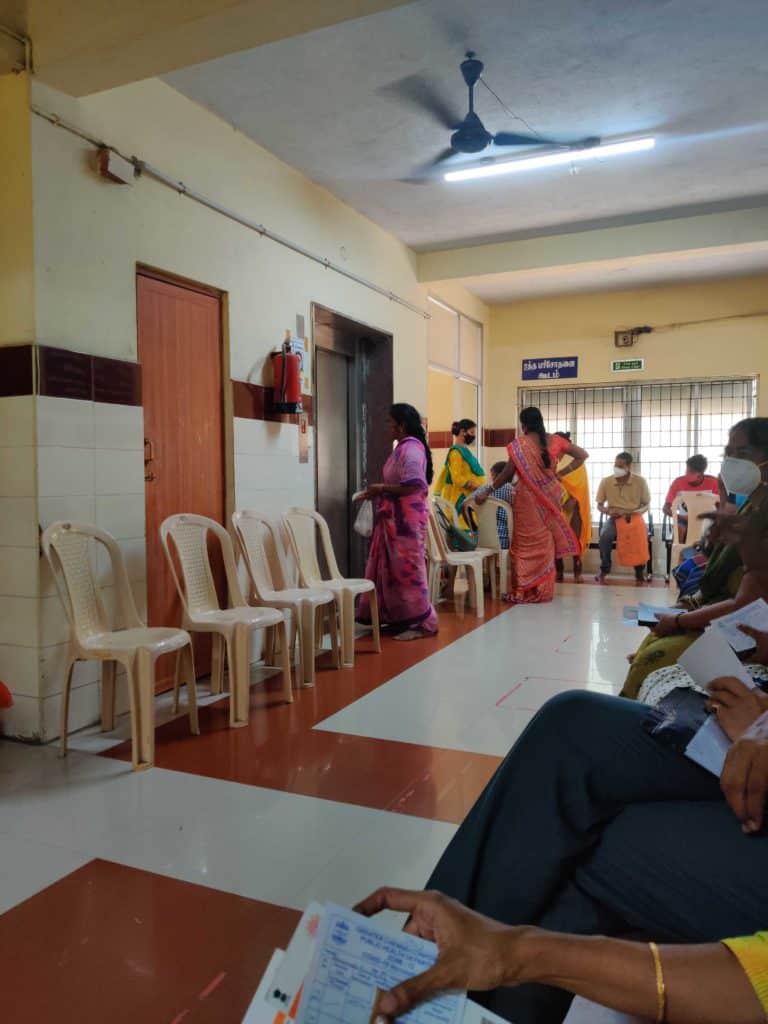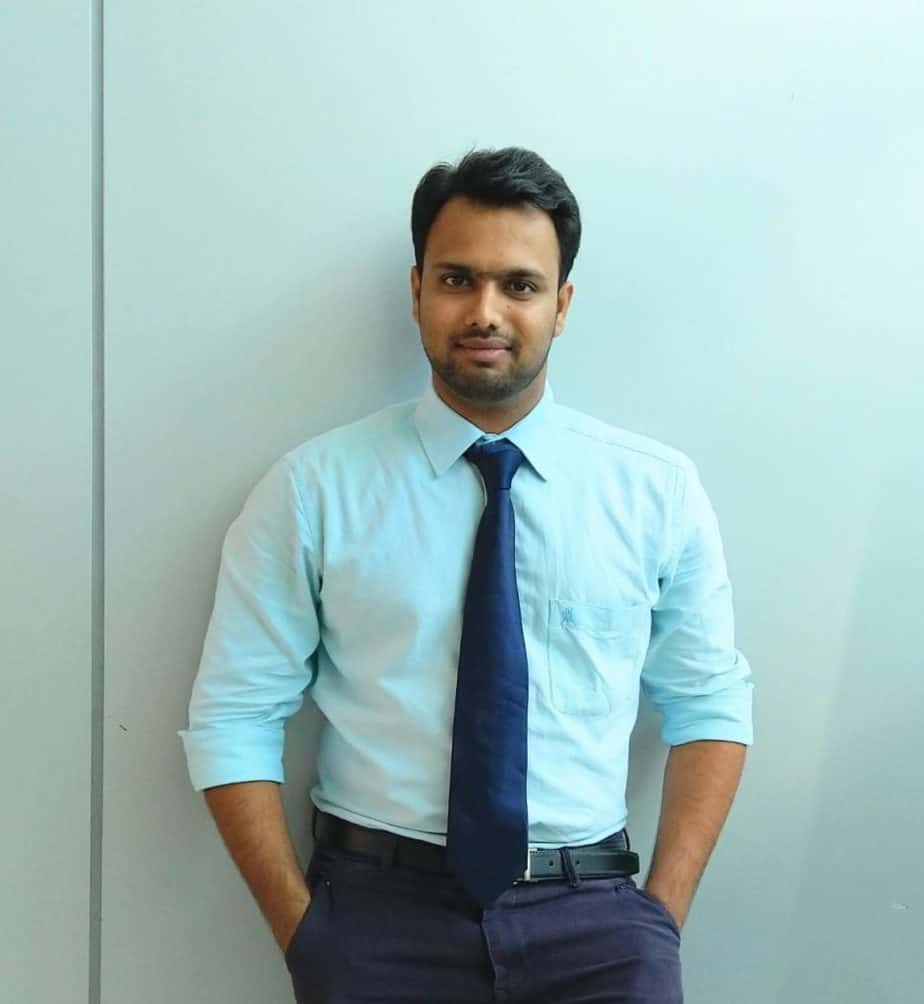While it is now widely acknowledged that vaccines hold the key to our fight against COVID-19, the vaccination drive in India’s cities appear to have hit a major roadblock and the daily coverage is far below what would have been a desirable target. The vaccination drive in Chennai began along with the rest of the country on January 16th. First in line were the healthcare and frontline workers, the drive then gradually expanded to cover those over 60 years of age and then those above the age of 45. Finally, from May 1st, it was declared that all those above the age of 18 could now get their COVID-19 vaccine. The real story on the ground is however far removed from the stated intent.
Vaccine coverage and availability
There are primarily two vaccines in the market at present, Covishield and Covaxin. A third, the Russian vaccine Sputnik, has just been launched in select private hospitals at a price of Rs 995 per dose, with Dr. Reddy’s Laboratories as the marketing partner. More vaccines await the completion of bridging trials before they can be introduced.
Vaccination for healthcare and frontline workers and for those above 45 years of age is mostly done with the stock of Covishield or Covaxin supplied by the central government. The state government is responsible for inoculation of those between 18-44 years of age. As on May 14th, the centre had supplied 76,43,010 doses to the state, of which 68,53,391 doses have been used.
Tamil Nadu has also seen a high amount of vaccine wastage , which on May 10th stood at 4.13%, down from above 8% just a week earlier. The state ranks 10th in terms of the absolute numbers of vaccine administered. Worryingly however, it is third from last, behind Bihar and Uttar Pradesh, in vaccination coverage in proportion to population, with only 8 out of every 100 eligible beneficiaries having been vaccinated.
As on May 11th, figures on the COWIN dashboard showed that Chennai had administered a total of 17,33,153 doses of COVID-19 vaccines so far. A majority of those who received the vaccine in the city belong to those above 45 years of age. The city has seen 4,56,406 vaccinations of those above 60 years of age. Those between 45-60 years have received 5,12,262 shots and those between 18-44 years have received 2,31,355 shots, including shots given to healthcare and frontline workers in these categories.
While the vaccination drive is ongoing for those above 45 years of age from the stock received from the Central government, the city has seen hiccups vaccinating those between 18 and 44 years of age. Due to the liberalised vaccination policy of the central government, the supply of vaccines to this category is to be divided between the state government and private hospitals. While the state government has promised vaccines for this category free of cost, the private hospitals in the city have fixed the rates at Rs 850 for a dose of Covishield and Rs 1250 for a dose of Covaxin.
While some private hospitals in the city have received the stock, the state is yet to receive enough vaccines to cover this age group. In order to vaccinate this category, the state government has opted to go for a global tender to procure vaccines, as the Indian makers of Covishield and Covaxin vaccine have declared that it would take weeks to supply vaccines to the states. As a result, the vaccination drive for the 18-44 category has been deferred in government centres.
An official at the TN health department said that inoculation at present in government centres will not be opened up for this category, since the stock received has been around 6 lakhs instead of the central allocation of 13 lakh doses. As this is inadequate to cover the population, the state is now exploring other ways to source the vaccines in order to keep up the pace of vaccination.
Read more: COVID vaccines: Citizens need better communication and information
Low stock and vaccine hesitancy
The vaccines for those above 45 and above 60 are procured by the Centre and distributed to the states, as per the official vaccination policy in effect since May 1st.
There have been some hitches in this drive, with the city recently seeing a shortage of Covaxin in the last week of April. Many government vaccination centres and private hospitals ran out of Covaxin, causing disruption in the vaccination schedule for those due for the second dose. Due to the shortage, priority was offered to those who have already taken the first dose.
“We had taken Covaxin in the last week of March. We were due to take the second dose in the last week of April but it took us three days to find the stock anywhere in the city. My wife and I made many calls to various centres, as we did not want to delay it with the second wave underway. We visited 4-5 Primary Health Centres (PHCs) and were turned away. Finally, three days after we were due for the second shot, we got news that one centre in Adyar had some stock, and we went there to complete our vaccination. I did not expect this situation at all. We thought an Indian-made vaccine would be better stocked,” says Swaminathan T, a 61-year-old LIC agent from Teynampet.
Covaxin still remains out of stock in many private hospitals with the PHCs getting stocks once every few days. The shortage at the end of April had eased a bit in the first week of May after with the arrival of some fresh stock to the state.
Those over 45 have also reported instances of non-availability of Covishield. Prasanna K, a domestic worker was to get her second shot of the vaccine at the Red Cross centre in Egmore on May 13. However, when she visited the centre on the day of the shot, she was sent away on grounds of lack of stock, and asked to return the following week.
While inadequate supply has been a major reason for the slow vaccination drive, vaccine hesitancy is also a factor. Many eligible older beneficiaries have been seen refusing the jab despite its benefits in the fight against COVID-19. “I am healthy enough, I think the vaccine may cause more harm than good. I may have taken the vaccine, but I saw what happened to actor Vivek and I think that it is due to the side effects of vaccination. My family is pressuring me but I have so far resisted it. I hope the pandemic will end soon or I will continue to stay indoors,” said Pushparaj R, a 55-year-old mechanic in T Nagar.
Others have had to delay taking the vaccine due to personal issues “My son is in the US. Until recently, we did not have any proper arrangements to take me to the vaccination centre. Only last week he was able to get a friend to take me to the centre though I was eligible to take the vaccine two months ago itself and was living in fear. If they offered door-to-door vaccination for the old people, it would help people like me”, says Sakunthala B, a 72-year old from Pulianthope.
A doctor speaks
Dr M Balakrishnan, working at a public health centre, elaborated on what goes on behind the scenes and the challenges faced at the PHCs. The PHCs get daily supply from the district vaccine store. Each centre gets vials based on the demand at the PHC. He says, “Every PHC gets a minimum of 100 doses per day. But the demand has been much greater these days, with over 200 people queueing up for vaccination. We convey the needs of the PHC and get additional vials but we have not been able to meet all the demand. In such cases, we try to prioritize the most vulnerable.”
The PHCs also face issues in terms of space constraints, maintaining social distancing and man power. Doctors and nurses continue to divide their duties between vaccination, assessing patients for treatment and ensuring order in the premises. Miscellaneous work such as data entry for vaccination also take up their time.
Dr Balakrishnan also raised the issue of problems surrounding the COWIN app. “We have both walk-ins and registration on the app. The app takes registrations even on Sundays when we don’t function due to weekly off days. So we see a sea of people showing up on Mondays, far more in number than the available stock of vaccines. Sometimes those who make appointments arrive just prior to the closing of the centre and we do not have vials left for the day.”
To overcome this, Dr Balakrishnan suggests allowing vaccination to take place from 9 am on a first come first serve basis. Those who arrive at the centre could be vaccinated in the morning and based on the number of arrivals, the PHCs could determine the stock needed and communicate it to the authorities.

However, this was not always the case, as pointed out by Dr Balakrishnan. “When the vaccines for the 60-plus was first launched, we saw a lot of wastage as many were hesitant to take it. So we have had days when 6-7 doses have gone to waste because we did not have takers. Now the stock levels remain the same but we have more than double the demand.”
Despite this, Dr Balakrishnan does not rule out vaccine hesitancy in the present. “We have seen many older people reluctant to take the vaccine. Many over 45 are still to be vaccinated. Now that the 18+ category has also been opened up, this situation is going to persist for months.”
Safety at the centres
There are 637 centres providing vaccines across the city,but Chennaiites have a problem with the poor arrangements in some of the more crowded vaccination centres. “We got our first dose at the PHC near my house in Alwarpet and the second one in Adyar. The first dose went smoothly, there were not too many people. However, when we went to Adyar for the second dose, the arrangements were enough cause for concern. Those who got the vaccine were waiting to fill out their details in the same room as those waiting for a swab test for COVID-19. The room was rather small. They could have had the testing stations at a safe distance from the crowd who had come for the vaccines,” says Nivin T, a 45-year old freelance writer from R A Puram.
This has been a common concern among many looking to vaccinate at PHCs, which also serve as local clinics where swab tests are administered for those who suspect COVID-19. Even the Madras high Court has flagged this issue, asking the state to move centres away from hospitals and ensure that the risk of spread of infections is curbed by setting up separate venues for vaccination.

Uphill battle and the digital divide
With the states having to provide vaccination for those between 18 and 45 by procuring directly from the manufacturers of Covishield and Covaxin, there has been a delay in administering vaccines for those between 18 and 45 years of age. Though the category was opened up on May 1, very few have been able to get the vaccine, that too only at the private centres. The vaccine is currently available only in the branches of a leading private hospital in the city, with slots booked through COWIN app.
“We got the vaccine on May 2nd. When I was checking the COWIN app, I was able to see that one hospital had stocks for 18+. It was a complete stroke of luck that I was able to get the shot. I had to pay Rs 850 for the vaccine. I am relieved as I have some underlying conditions and was waiting for the vaccine”, says Sneha S, a 27-year-old OMR resident.
“I went to a PHC to see if I can get the vaccine, but they said it was not available for my age group. We were told to check back later. I have heard that you can get it in a private hospital but I cannot afford to pay so much. I will wait for the government to give me the vaccine”, says Senthil K, a 34-year-old daily wager in Egmore.
Some others have had to use their know how of technology to create alerts when slots open up using the COWIN API. This allowed those who get alerts to book slots as soon as they open up. An individual who did not wish to be named said, “I wrote a script to get a ping when the slot opened up and was able to get my vaccine as a result. I am aware it is not something everyone can do, but I didn’t think about it too much. I hope everyone can get access to vaccines soon.”
However, reports suggest that revisions to the CoWIN API guidelines could have made such apps, tools and Telegram groups that were providing real-time data on the availability of COVID-19 vaccine slots redundant.
For the 18-44 category, the government has mandated registration through COWIN app. But there has been some confusion among the eligible beneficiaries in other age groups about the need for the app. “I had to take the help of my neighbours to book a slot. Since we have been strictly confining ourselves indoors, I was hesitant to interact with anyone, but had to do this to get the vaccine as I do not know how to use the app. But when I went to the vaccination centre I saw many had not used the app. I did not know that was even an option,” says Ebenezer James, a 69 year old retiree living in Choolaimedu.
Read more: All you need to know to get your COVID vaccine in Chennai now
As more and more eligible beneficiaries await vaccines, the city is seeing a record number of COVID-19 cases. In recent days, the city has seen the highest number of cases thus far. With over 48,000 active cases in the city on May 17th, an effective vaccination programme is the only way to protect more persons from serious harm caused by contracting COVID-19.
